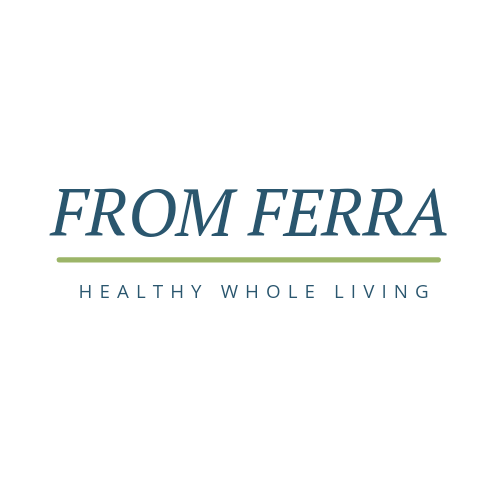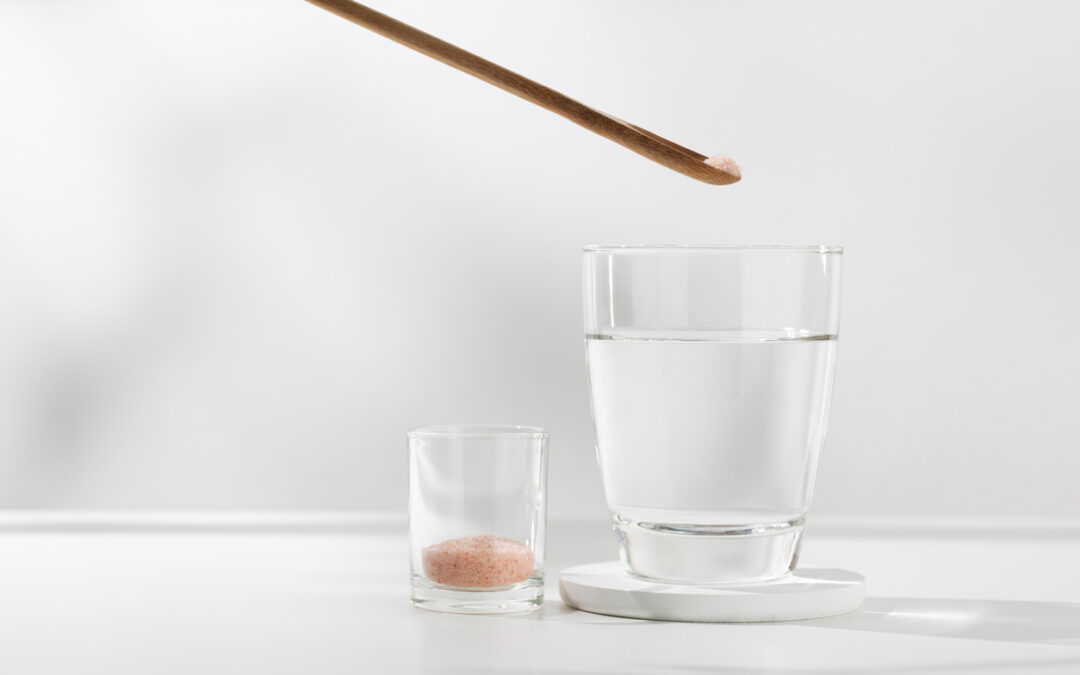Remember when your mom used to nag you about drinking enough water? Turns out, she was onto something – but maybe not the whole story. In school I learned that most Americans live in a state of chronic dehydration! As a Nutritional Therapy Practitioner who’s seen more dehydrated clients than I care to count, I’m here to spill the tea (or should I say, water?) on what real hydration looks like.
Spoiler alert: It’s not just about chugging eight glasses a day.
Now, don’t get me wrong. Water is great. It’s the superstar of hydration, the MVP of beverages. But here’s the kicker – your body is more complex than a houseplant. You can’t just water it and call it a day.
So, let’s take a closer look at what it means to truly hydrate. What you’re about to learn might just fully change the way you think about quenching your thirst.
At its core, hydration is about more than just water intake—it’s about how effectively your body can use that water at a cellular level. Research has shown that proper hydration is essential for maintaining blood volume, regulating body temperature, and supporting vital organ functions [1].
But here’s the kicker: drinking water alone doesn’t guarantee optimal hydration. Enter electrolytes, the unsung heroes of the hydration world.
In June 2024 I did one of my annual yoga retreats (in Portugal this year) and I was invited to do a hydration workshop on Summer Solstice. I am truly honored to be the first guest speaker at one of Free Spirited Wanderer’s yoga retreats. During the workshop, we did a hydration assessment together. I spoke about roles of water, signs of dehydration, water options, drinking tips and so much more. But everyone was most interested in learning more about electrolytes.

Electrolytes: The Key to Unlocking True Hydration
Water depends on electrolytes for proper hydration. What are electrolytes you ask? Electrolytes are minerals in your blood and other bodily fluids that carry an electric charge. They play a crucial role in maintaining fluid balance, nerve signaling, and muscle function. A study published in the Journal of the International Society of Sports Nutrition found that electrolyte-enhanced hydration was more effective than water alone in maintaining fluid balance during prolonged exercise [2].
The most important electrolytes for hydration include:
- Sodium
- Potassium
- Magnesium
- Calcium
These minerals work together to help your body absorb and retain water more effectively, ensuring that hydration reaches the cellular level where it’s needed most.
Do you ever drink your daily water and have to run to the bathroom often? That’s because you aren’t absorbing your water. Add some electrolytes.
Electrolyte Options
There are so many electrolytes on the market today. Below are my favorites and the ones that I use personally on a regular basis.
- LMNT – My favorite
- Vitassium Fast Chews – I use these when I hike
- Redmonds Real Salt – add a dash to every glass of water
- Cure – my mom loves these
- Buoy I add a squirt of these in my matcha every morning
- Smart Water is a great option when traveling – as it has electrolytes added in
- Pellegrino mineral water is my water choice in restaurants
Beyond the Bottle: Cellular Hydration Strategies
While drinking water (with electrolytes) is crucial, there are other ways to boost your hydration game.
- Eat Water-Rich Foods: Fruits and vegetables like cucumbers, watermelon, and leafy greens can contribute significantly to your daily fluid intake.
- Optimize Your Gut Health: A healthy gut microbiome can enhance nutrient absorption, including water with electrolytes and bone broth.
- Manage Stress: Chronic stress can disrupt your body’s fluid balance. Incorporating stress-management techniques like meditation or yoga can support overall hydration status.
- Get Your Antioxidants: Antioxidants play a crucial role in cellular health and hydration. They protect cell membranes from oxidative damage, which can impair cellular water balance. A study in the journal Food Chemistry found that certain antioxidants, particularly flavonoids, can enhance something called aquaporin expression – the proteins that act as water channels in cell membranes [3]. Include a variety of colorful fruits and vegetables in your diet, or consider a high-quality antioxidant supplement to support cellular hydration from the inside out.
Cracking the Hydration Code in Action
So, what does this mean for your daily hydration routine? Here’s a simple formula to remember:
Optimal Hydration = Water + Electrolytes + Cellular Support
Start by drinking half your body weight in ounces of water throughout the day. If you weigh 120 lbs, drink 60 oz of water. But don’t stop there. Add a pinch of high-quality sea salt to your water, or consider an electrolyte supplement.
Invest in a glass or stainless steel water bottle that you enjoying drinking from. Add some stickers to it to personalize it for yourself.
Incorporate water-rich and antioxidant-rich foods into your diet, and pay attention to your gut health and stress levels.
Remember, hydration is a dynamic process that requires a holistic approach. By understanding and implementing these strategies, you’re not just drinking water—you’re nourishing your body at the deepest level.
As we continue to unravel the complexities of human physiology, one thing becomes clear: true wellness lies in the balance of multiple factors. Hydration is no exception. By using this comprehensive approach to hydration, you’re taking a significant step towards cracking the hydration code and optimizing your health.
You’ll Also Love…
I’m Here to Help
I’m a Nutritional Therapy Practitioner trained by the Nutritional Therapy Association. I help women dealing with chronic digestive issues and those who are concerned about their cardiovascular health address these concerns through nutrition and lifestyle. We do this together by naturally balancing your body systems through a properly prepared whole foods diet, lifestyle changes and supplements, if necessary.
References
- Popkin, B. M., D’Anci, K. E., & Rosenberg, I. H. (2010). Water, hydration, and health. Nutrition Reviews, 68(8), 439-458.
- Sawka, M. N., Burke, L. M., Eichner, E. R., Maughan, R. J., Montain, S. J., & Stachenfeld, N. S. (2007). American College of Sports Medicine position stand. Exercise and fluid replacement. Medicine and Science in Sports and Exercise, 39(2), 377-390.
- Portincasa, P., & Calamita, G. (2019). Phytocompounds modulating Aquaporins: Clinical benefits are anticipated. Food Chemistry, 274, 642–650. https://doi.org/10.1016/j.foodchem.2018.09.029
This document contains some affiliate links and I may be compensated, but all opinions are my own and I only share products that I personally use and love. Thank you for all your support!


Recent Comments